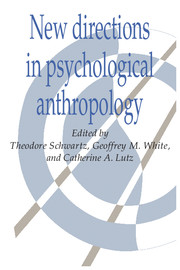Book contents
- Frontmatter
- Contents
- List of contributors
- Introduction
- I Cognition and social selves
- II Learning to be human
- III The body's person
- IV Psychiatry and its contexts
- 9 Culture and psychopathology: directions for psychiatric anthropology
- 10 A prologue to a psychiatric anthropology
- 11 Hungry bodies, medicine, and the state: toward a critical psychological anthropology
- V Psychoanalytic approaches
- VI Disciplinary perspectives
- Index
11 - Hungry bodies, medicine, and the state: toward a critical psychological anthropology
Published online by Cambridge University Press: 05 June 2012
- Frontmatter
- Contents
- List of contributors
- Introduction
- I Cognition and social selves
- II Learning to be human
- III The body's person
- IV Psychiatry and its contexts
- 9 Culture and psychopathology: directions for psychiatric anthropology
- 10 A prologue to a psychiatric anthropology
- 11 Hungry bodies, medicine, and the state: toward a critical psychological anthropology
- V Psychoanalytic approaches
- VI Disciplinary perspectives
- Index
Summary
This chapter does not pretend to be, nor to offer, a comprehensive or definitive statement on “critical psychological anthropology,” nor will it present a method specific to itself. Rather, it poses the opening question: if there is to be a critical, indeed a radical, alternative to “conventional” psychological anthropology what form(s) might it take? And what is to be implied, after all, in the term “critical”?
I am motivated in part by a certain dis-ease, a malaise concerning the field of psychological anthropology which seems to have departed from its roots as a bridging discipline between the fragmented human sciences: between biology (and the biomedical sciences) on the one hand with its Cartesian legacy and its reified notions of the mechanistic (and universal) “body,” and psychology, with its equally mechanistic and reified notions of “mind,” on the other; and between both of these and social anthropology with its focus on society and the collectivity – the “social body,” if you will. Meanwhile, the once-holistic discipline of anthropology itself no longer even pretends to an integration among its classic and bridging subdivisions so that biology and culture, history (writ large) and ethnology have seceded from the union and now “liberated” each is free to pursue its own form of reductionism.
Furthermore, as psychological anthropology becomes increasingly cognitive and formalistic in orientation, the field strikes me as alarmingly “disembodied” so that any integrated notion of the “mindful body” (see Scheper-Hughes and Lock 1987) has begun to fade, leaving, like the Cheshire cat, just the traces of a quizzical smile.
- Type
- Chapter
- Information
- New Directions in Psychological Anthropology , pp. 221 - 248Publisher: Cambridge University PressPrint publication year: 1993
- 2
- Cited by



